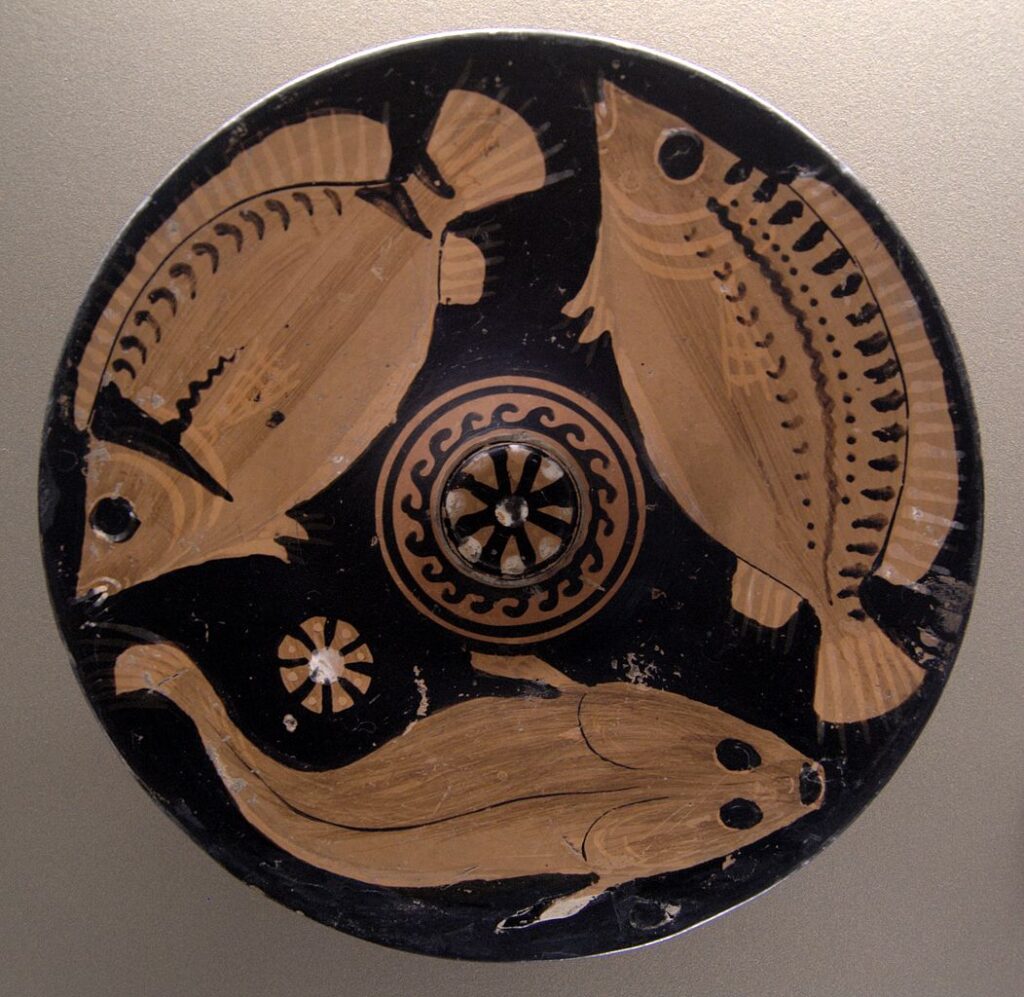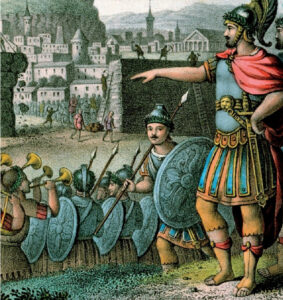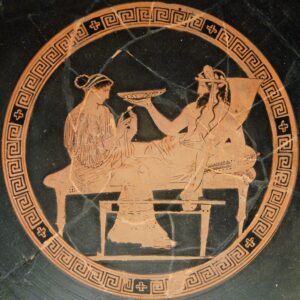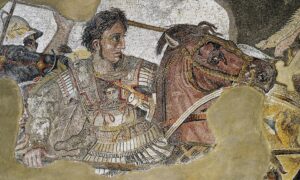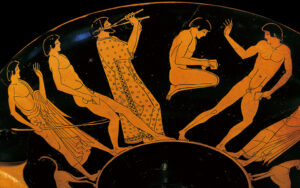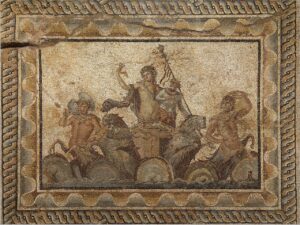Food in ancient Greece was an important part of ancient Greek daily life. The ancient Greeks had a rich and diverse selection of food items that reflected their love for food and their appreciation of the natural environment. The food of ancient Greece was heavily influenced by the climate, geography, and resources available in the region. In this article, we look at the history of ancient Greek food, exploring the ingredients, cooking techniques, and cooking traditions of the ancient Greek people.
Most Common Ingredients in Food in Ancient Greece
Ancient Greek food relied heavily on locally grown and harvested ingredients for their meals. Olives, grapes, wheat, barley, figs, and cheese were among the most commonly used ingredients. Fresh vegetables, such as onions, garlic, and leeks, were also commonly used, as were herbs like basil, mint, and oregano. All of these food items were grown on ancient Greek farms, which was the backbone of the ancient Greek economy. As well, since Greece was a rugged and mountainous landscape, they needed to focus on farming crops that could grow more easily in those conditions.
Meat was a luxury in ancient Greek society, and was typically reserved for special occasions and feasts. With that said, pork, beef, and lamb were the most commonly consumed meats, while seafood was also popular along the coast.
The main staple foods were cereal grains, such as barley and wheat, which were used to make bread and porridge. The ancient Greeks also enjoyed a variety of cheeses, including feta and other types of soft and hard cheese. Dairy products such as yogurt, butter, and cheese were also commonly consumed. As well, the ancient Greek people were known to enjoy sweet pastries, cakes, and honey.
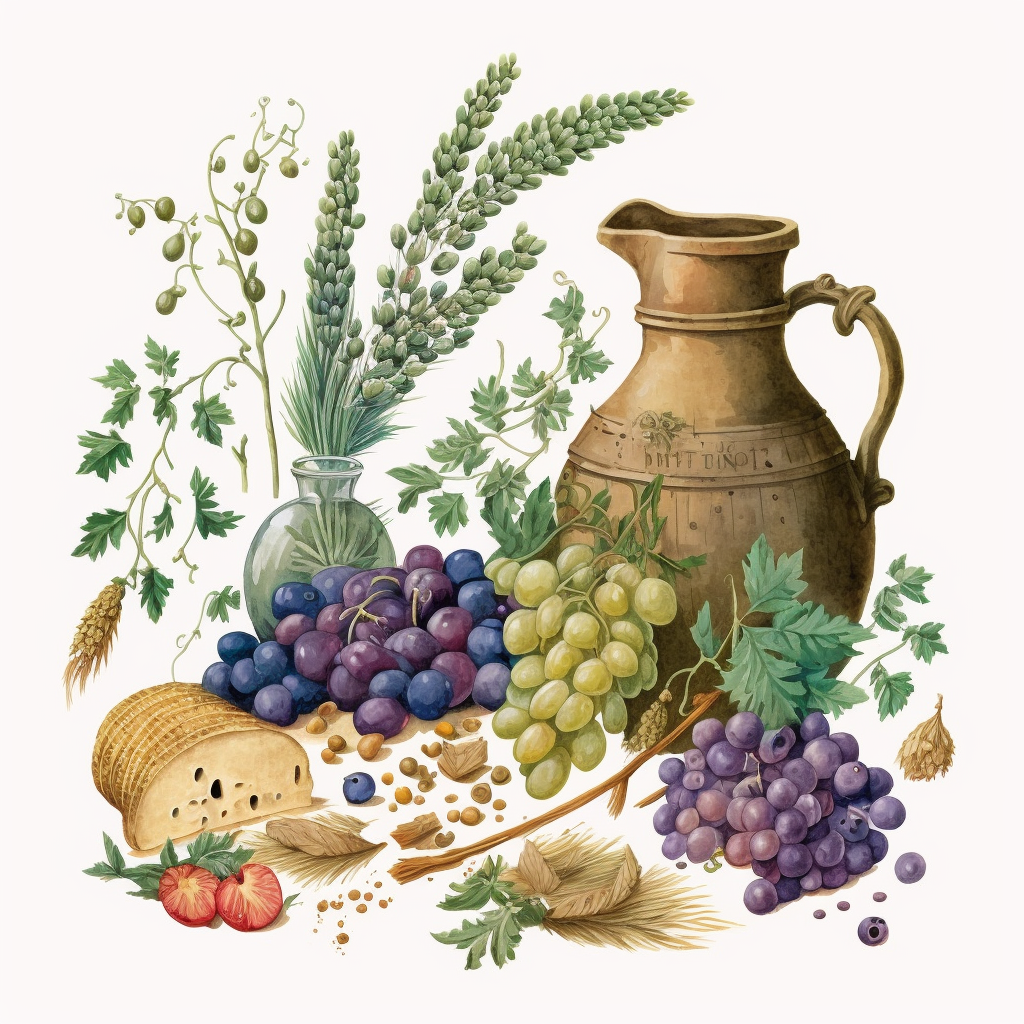
Cooking Techniques of Food in Ancient Greece
Cooking in ancient Greece was simple and straightforward, with most dishes being grilled, baked, or boiled. Bread was a staple food and was baked in clay ovens or on hot stones. The ancient Greeks also made use of a special type of oven known as a brazier, which was used for roasting meat. Wine was a popular drink in ancient Greece, and was often added to dishes for flavor and to preserve the food. Wine was popular, because grapes (which wine is made from) was a common crop in ancient Greece.
Ancient Greek people ate mostly at home and meals were simple, but they also had taverns, where they could have a meal and drink wine or beer with others from the community. The ancient Greek people also had symposia, which were social gatherings where the people enjoyed wine and food, and discussed philosophy and other intellectual pursuits.
Social Gatherings and Food in Ancient Greece
It’s worth noting that food was not only used for sustenance (eating for survival) but also as a way to spend time with friends and family (similar to today), and as an offering to the gods. Food was also an important aspect of religious rituals, and the ancient Greeks had many festivals and ceremonies that centered around food and drink. As such, food in ancient Greece was important to both ancient Greek culture and religion.

